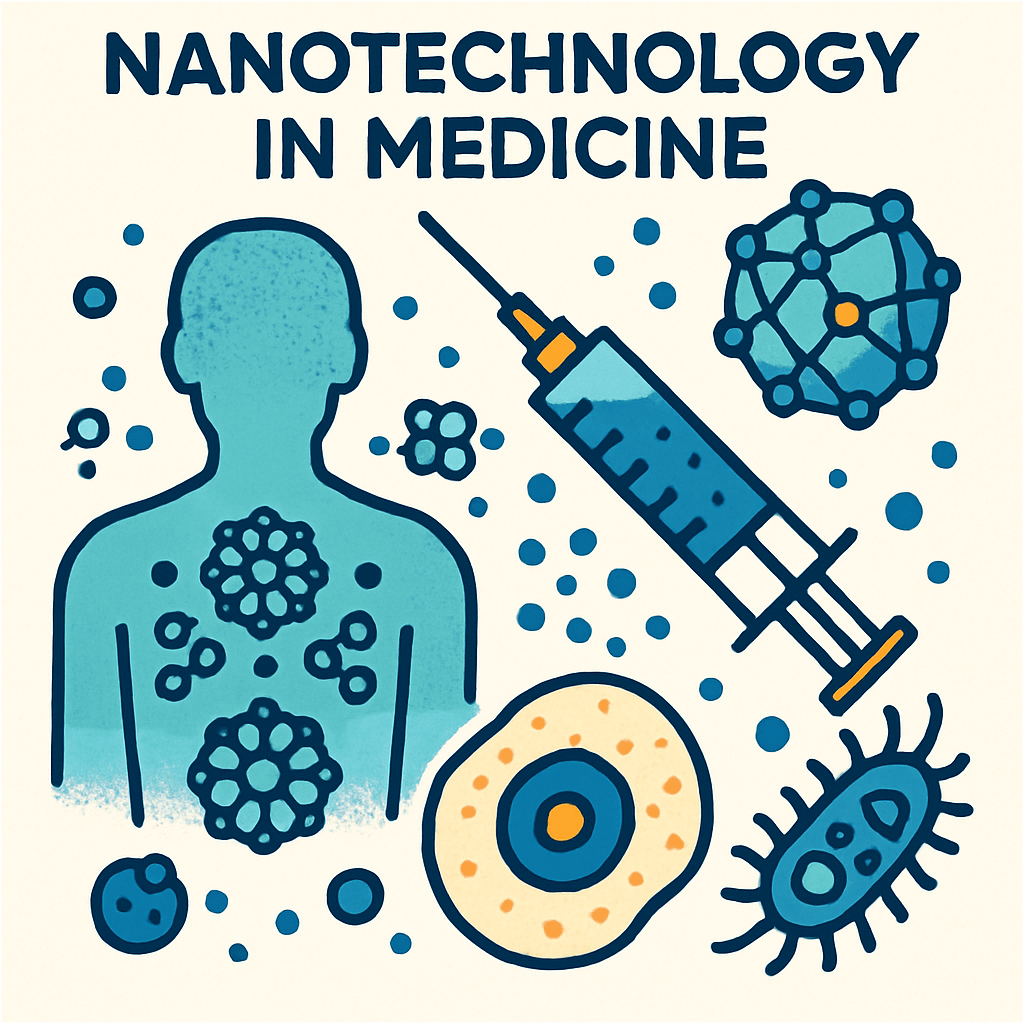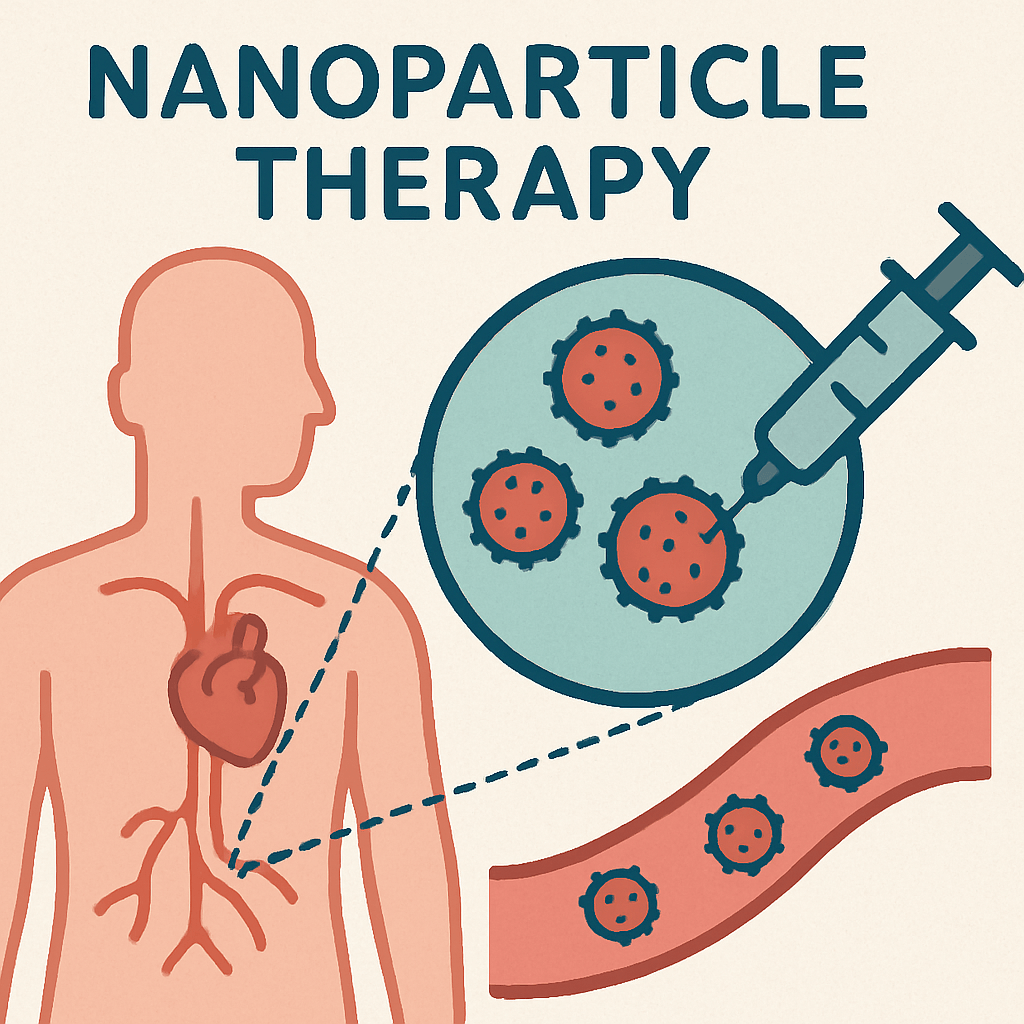Revolutionizing Healthcare: Nanotechnology's Impact on Medicine
Imagine a world where diseases can be detected at their earliest stages, treatments are precisely targeted to affected cells, and side effects are minimized. This isn't a far-off dream; it's the potential reality ushered in by nanotechnology in healthcare. Let's explore how this cutting-edge field is transforming medicine.

Nanotechnology involves manipulating materials on an atomic or molecular scale, typically less than 100 nanometers in size. To put that into perspective, a single human hair is about 80,000 to 100,000 nanometers wide. In medicine, this science opens up a new frontier, enabling breakthroughs that were previously unimaginable.
What is Nano Diagnostics?
Nano diagnostics refers to using nanotechnology to improve disease diagnosis. By integrating nanoscale devices and materials, doctors can detect diseases at an earlier, more treatable stage. For example, nano diagnostic tools can identify cancer markers in the bloodstream long before traditional imaging techniques can detect tumors. This early detection increases the chances of successful treatment and survival.
Nanotechnology Uses in Medicine
Nanotechnology offers a myriad of uses in medicine, from diagnostics to treatment and everything in between. Let's dive into some of the most promising applications.
Nanoparticles Therapy

Nanoparticles are tiny particles that can be engineered to perform specific tasks in the body. In therapy, they can be designed to deliver drugs directly to diseased cells, sparing healthy cells and reducing side effects. This targeted approach is particularly useful in cancer treatment, where traditional chemotherapy affects both cancerous and healthy cells, leading to severe side effects.
Nano Drug Delivery
One of the most significant advantages of nanotechnology in medicine is its potential to revolutionize drug delivery systems. Nano drug delivery involves using nanoparticles to transport drugs directly to specific cells or tissues. This precision ensures that the drugs are delivered where they are needed most, improving efficacy and minimizing side effects.
For instance, researchers are developing nanoparticles that can cross the blood-brain barrier, a protective shield that prevents most drugs from reaching the brain. This breakthrough could lead to effective treatments for neurological disorders like Alzheimer's and Parkinson's diseases.
Innovations in Nanotechnology Healthcare
Nanotechnology is driving innovation in healthcare, opening up new possibilities for research and treatment.
Nanotech Innovations in Cancer Treatment
Cancer treatment is one of the most promising areas for nanotech innovations. Researchers are developing nanoparticles that can deliver chemotherapy drugs directly to tumors, maximizing the drug's impact on cancer cells while minimizing damage to healthy cells. This approach not only improves treatment outcomes but also reduces the harsh side effects associated with traditional chemotherapy.
Advancements in Nanomedicine Research

by RephiLe water (https://unsplash.com/@revolution_in_filtration)
Nanomedicine research is progressing rapidly, with scientists exploring new ways to harness nanotechnology for medical applications. From developing nanoscale devices for monitoring vital signs to engineering nanoparticles for tissue regeneration, the possibilities are vast and exciting.
Medicine in Nanotechnology: Beyond Treatment
Beyond treatment, nanotechnology is also improving other aspects of healthcare, such as medical imaging and biosensors. Nanoscale contrast agents enhance the clarity and precision of imaging techniques like MRI and CT scans, allowing for more accurate diagnoses. Similarly, biosensors incorporating nanotechnology can monitor glucose levels in real-time for diabetes management or detect pathogens in the body, facilitating early intervention.
Challenges and Ethical Considerations
While the potential benefits of nanotechnology in healthcare are immense, there are also challenges and ethical considerations to address.
Safety Concerns and Regulatory Hurdles
The safety of nanotechnology in medicine is a primary concern. As nanoparticles behave differently than larger particles, understanding their interactions with the human body is crucial. Researchers must conduct thorough studies to ensure their safety and efficacy.
Regulatory bodies, such as the FDA, face the challenge of developing guidelines and standards for the approval of nanotechnology-based medical products. These regulations must balance innovation with patient safety, ensuring that new treatments are both effective and safe for human use.
Ethical Implications
The ethical implications of nanotechnology in healthcare also warrant careful consideration. Questions arise regarding privacy, consent, and the potential misuse of nanotechnology. For example, as nano diagnostics become more advanced, concerns about genetic privacy and data security may arise. Ensuring that these technologies are used ethically and responsibly is essential.
The Future of Nanotechnology in Medicine
The future of nanotechnology in medicine is bright, with ongoing research and development paving the way for groundbreaking advancements. As our understanding of nanotechnology deepens, we can expect to see even more innovative applications that will continue to transform healthcare.
A New Era of Personalized Medicine
Nanotechnology has the potential to usher in a new era of personalized medicine. By tailoring treatments to individual patients' genetic makeup and specific needs, healthcare providers can offer more effective and targeted therapies. This personalized approach can lead to better outcomes and improved patient satisfaction.
Collaboration and Interdisciplinary Research
The advancement of nanotechnology in medicine requires collaboration between scientists, engineers, and healthcare professionals. Interdisciplinary research is essential to overcome the challenges and unlock the full potential of this transformative technology. By working together, experts from various fields can develop innovative solutions and drive the future of healthcare forward.
In conclusion, nanotechnology is revolutionizing healthcare by providing new tools and techniques for diagnosing and treating diseases. As researchers continue to explore its possibilities, nanotechnology holds the promise of transforming medicine, improving patient outcomes, and enhancing the quality of life for people worldwide.






